All Stories
-
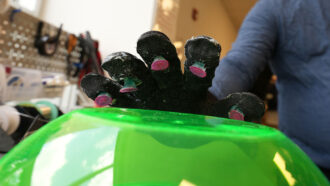 Tech
TechLike an octopus, this glove lets fingers grip slippery objects
The octopus-inspired suckers on each fingertip grab and release objects on demand.
-
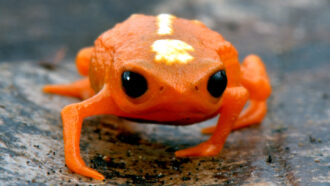 Animals
AnimalsWhy these jumping toadlets get confused mid-flight
The tiny pumpkin toadlet tumbles when it jumps. Its ear canals may be too tiny to help the animal track its motion through the air.
By Meghan Rosen -
 Plants
PlantsCatnip’s insect-repelling powers grow as Puss chews on it
Damaging the leaves boosts the plant’s chemical defenses — and their appeal to cats.
By Anil Oza -
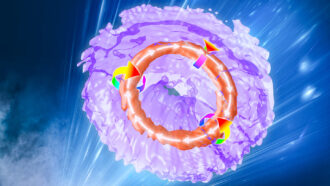 Physics
PhysicsScientists used lasers to make ‘smoke rings’ of light
Physicists had a bright idea: Make light into swirling, ring-shaped vortices, similar to smoke rings or bubble rings.
-
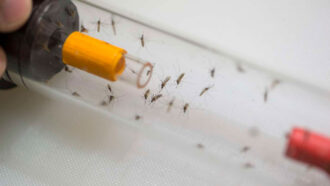 Animals
AnimalsSleepy mosquitoes prefer dozing over dining
Mosquitoes repeatedly shaken to prevent slumber lagged behind well-rested ones when offered a leg to feed on.
By Anna Gibbs -
 Tech
TechYou might someday ‘wallpaper’ your bedroom with this loudspeaker
This thin, flexible and lightweight loudspeaker could reduce noise in loud spaces. It also might enable listeners to experience sound in new ways.
-
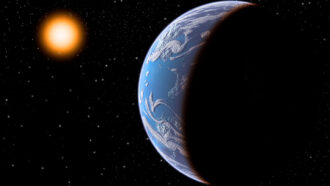 Planets
PlanetsScientists Say: Habitable Zone
The habitable zone is the region around a star where temperatures could be right for worlds to host liquid water.
-
 Physics
PhysicsWhen dominoes fall, how fast the row topples depends on friction
Two types of friction help determine how quickly a line of dominoes collapses, computer modeling shows.
-
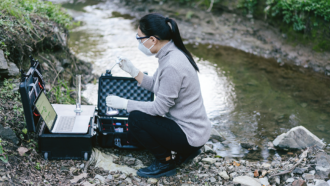 Chemistry
ChemistrySimple process destroys toxic and widespread ‘forever’ pollutants
Ultraviolet light, sulfite and iodide break down these PFAS molecules faster and more thoroughly than other methods.
By Nikk Ogasa and Janet Raloff -
 Animals
AnimalsButterfly ‘tails’ might be part of an escape tactic
Slender, tail-like extensions on their wings may help some butterflies survive attacks by hungry predators.
By Jake Buehler -
 Space
SpaceLet’s learn about surviving a trip to Mars
Getting to and surviving on the Red Planet will take lots of innovation.
-
 Computing
ComputingA new supercomputer just set a world record for speed
Able to perform more than a quintillion calculations per second, it will allow scientists to study exploding stars, subatomic particles and more.